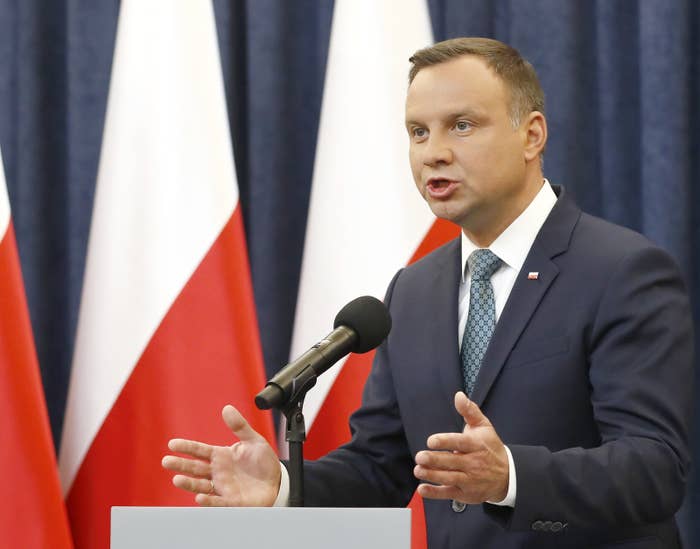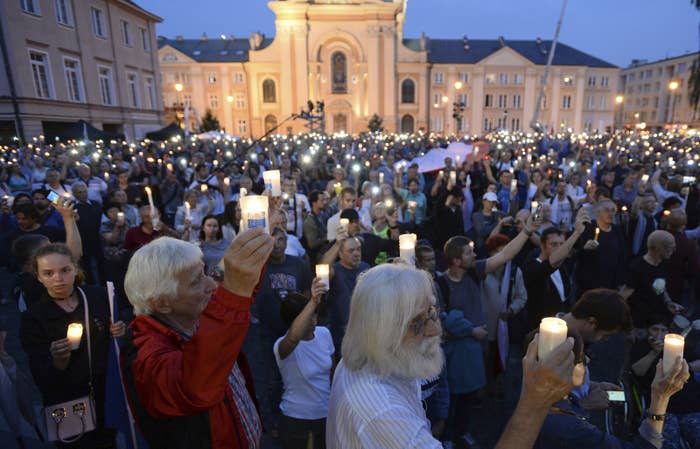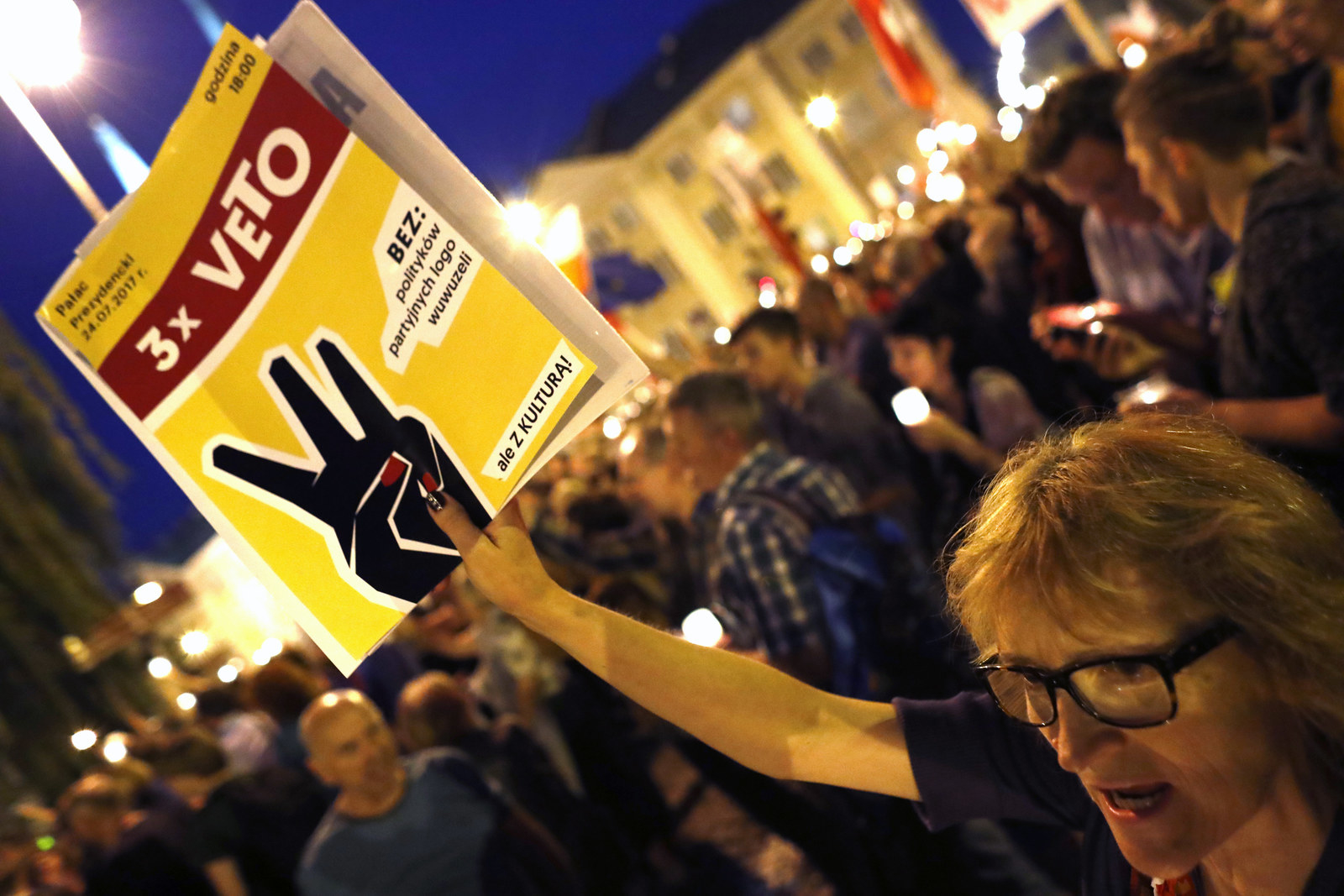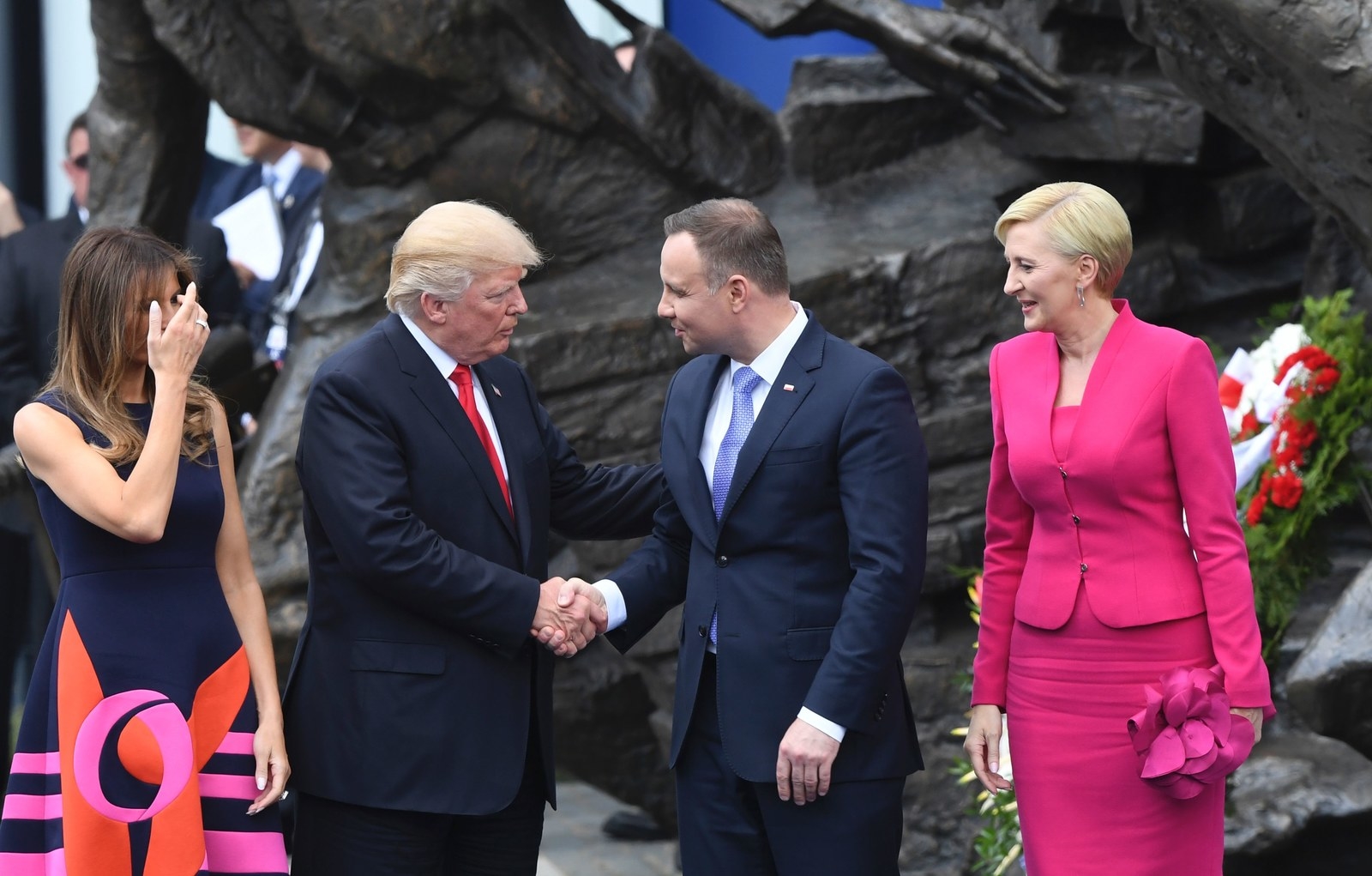
In a surprise move, and following intense public outcry, Polish President Andrzej Duda on Monday morning announced he would veto a controversial law taking power away from the country's Supreme Court and placing it in the hands of the ruling right-wing party. Many saw the law as a step away from democracy.
Under the law, all current Supreme Court justices — there are over 80 — would be required to resign.
A minister from the government — currently the Law and Justice Party, a right-wing populist party that has ruled since 2015 — would then have handpicked new justices. The government would also have power to remove justices.

Prior to the announcement of Duda's veto, thousands of Poles took to the streets and protested outside of courthouses against the law, which they decried as draconian, with an estimated 50,000 attending a protest in the capital, Warsaw, on Thursday.
Protesters also gathered this week outside the presidential palace, begging Duda to carry out a veto. The demonstrations continued over the weekend, with huge crowds in the streets of Warsaw on Sunday evening.
WARSAW!
Three justice reform bills passed parliament 55–23 in a late Friday night session that finished at 2 a.m. local time, but the reforms required presidential approval. Although Duda has said he will veto the two most controversial bills, the third bill, which reorganizes Poland’s local courts, has also raised concerns among EU officials and experts.
We need to bear in mind that the Law on the Common Courts has not been vetoed, and this in itself has significant consequences.
In televised remarks delivered from the presidential palace on Monday, Duda said: “Poland’s legal system does need a thorough reorganization, but above all it needs to provide a sense of security. And no change of the legal system should open a divide between society and the state. I needed to make this decision immediately as the proposed changes caused huge emotions.”
Duda's decision to veto sees him openly break with Law and Justice Party leader Jaroslaw Kaczynski, whose agenda he has historically supported since taking office.
Kasczynski has argued that the courts are full of “post communist” judges who have been in power since before the fall of communism 28 years ago and cannot be trusted. "The Polish justice system has a deep sickness which is the collapse of moral principles,” he said.

EU leaders had pleaded for Duda to not sign the law, with Donald Tusk, a former prime minister of Poland and the current president of the European Council, saying parliament had already "tarnished" Poland's reputation with the proposal.
“It is my belief that [the ruling party's] most recent actions go against European values and standards and risk damaging our reputation,” said Tusk. “They transport us – in the political sense – in time and space: backwards and eastwards.”
If the law had passed, Poland could have been stripped of its EU voting rights for breaching the union's "fundamental rights." Those fundamental rights include "liberty, democracy, respect for human rights and fundamental freedoms, and the rule of law."

The US State Department released a statement on Friday condemning the law:
The Polish government has continued to pursue legislation that appears to undermine judicial independence and weaken the rule of law in Poland. We urge all sides to ensure that any judicial reform does not violate Poland’s constitution or international legal obligations and respects the principles of judicial independence and separation of powers.

But US President Donald Trump honored Poland by visiting earlier in July, giving a nationalistic speech about the survival of the West and making no mention of the country's slide away from democracy.
"As the Polish experience reminds us," Trump said at the time, "the defense of the West ultimately rests not only on means but also on the will of its people to prevail and be successful and get what you have to have."
CORRECTION
President Andrzej Duda announced he would veto two of the bills on Monday morning. An earlier version of this article suggested he had vetoed them already.

